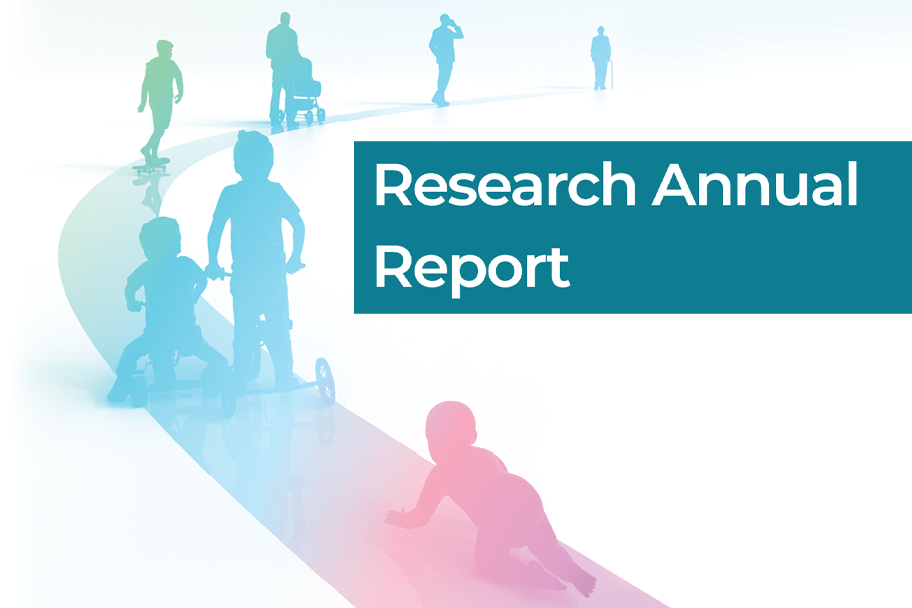Advancing Safer, Smarter Drug Therapy for Kids
Children often respond differently to medications due to a combination of developmental, genetic, and environmental factors. These variations can make them more vulnerable to drug toxicity or ineffective treatments. Our goal is to better understand the underlying causes of these differences and develop personalized approaches and advanced digital tools to ensure that every child receives the right, safe, and effective dose of medication.
Investigators in the Cincinnati Children’s Division of Translational and Clinical Pharmacology (TCP) conduct and support bench-to-bedside pharmacology research and investigator-initiated clinical studies to ensure the availability of safe medicines for children. Our team investigates factors affecting drug disposition and response in children and younger adults, which are then integrated into improving new and existing drug therapies in neonates, infants, children, adolescents and young adults.
Our Research
Our faculty conducts clinical, translational and basic research to further our understanding of how the youngest patients absorb, distribute, metabolize, eliminate and react to medications.
Partnering with faculty in multiple divisions, we perform studies that promote and enhance the development, rational use and individualization of drug prescriptions. This collaboration helps clinicians increase drug efficacy and reduce toxicity by optimizing drug selection and personalizing drug dosing.
Our research supports our mission to ensure safety and efficacy of medications in pediatric patients. Thanks to our research, Cincinnati Children’s is one of the first hospitals to offer genetic testing that helps doctors and nurses choose and dose medication to best meet the needs of an individual patient and one of the only hospitals in the world to provide clinical model-informed precision dosing services of immunosuppressants and beta-lactam antibiotics to personalize medication dosing in some of the most complex patients.
Research our faculty work on are tied to pharmacogenetics, pharmacometrics and systems pharmacology, AI and machine learning, and multi-omics-informed and physiological modeling as well as clinical trial design and simulation. Our recent focus includes biomarker discovery and validation and improved physiologically-based pharmacokinetic modeling for drug safety evaluation using quantitative mass spectrometry-based multi-omics approaches.
As part of the Genetic Pharmacology Service, we investigate new methods to reduce adverse drug reactions. For example, we identify genetic variations in drug metabolism and disposition, providing dose recommendations based on a patient’s drug metabolizing genotype and phenotype. We also delineate clinically significant drug interactions.
Research in Translational and Clinical Pharmacology strives to:
- Develop dosing algorithms and expert systems for individualized drug therapy
- Provide customized drug dosing recommendations to pediatric patients based on therapeutic drug monitoring and model-informed precision dosing
- Allow patients to achieve the best possible clinical outcome with the fewest side effects
- Develop new approaches including patient-centric methods for how we study the effects of medications in children
- Discover and validate pediatric-specific biomarkers of drug safety and efficacy for precision dosing using quantitative proteomics and metabolomics.
- Develop digital tools to facilitate clinical implementation of personalized medications
- Perform basic and translational research on understanding mechanistic basis of variability in drug response in pediatrics and integrate these data into physiologically-based mechanistic models to ensure safety and efficacy of drugs in pediatrics.
Why is our research important?
Our program promotes the 2002 Best Pharmaceuticals for Children Act (BPCA), which sets a process for studying on-patent and off-patent drugs for use in pediatric populations. We respond to demands for pediatric clinical drug studies, including those by the U.S. Food and Drug Administration (FDA) Modernization Act and the FDA 1998 Pediatric Rule.
This is important because:
- Many routinely prescribed medicines are not well studied in the pediatric population. This is particularly true for critically ill newborns, in whom up to 75% of medicines used have not been adequately studied.
- Pharmacometrics research and therapeutic drug management can help tailor doses to individual needs, prevent drug-drug interactions and avoid adverse events in pediatric patients.
- Pharmacogenetics research shows children metabolize drugs in widely differing ways.
- Quantitative metabolomics and proteomics offer state-of-the-art solutions to discover and validate novel biomarkers that can predict pharmacokinetic variability, drug-drug interaction, as well as safety and efficacy of medication.
Clinical Pharmacology Services
Pharmacokinetic Consultation Service
We provide model-informed precision dosing, therapeutic drug management (TDM) and pharmacogenetic testing to provide the best care for children. Our Laboratory of Applied Pharmacokinetics and Therapeutic Drug Management serves patients with recurrent sub- or super-therapeutic drug concentrations or drug treatment failures.





